With the divorce rate still on the rise, many children in the U.S. live between two households. As of 2014, the number of children whose parents had a shared physical custody agreement was 34% in the U.S. That means that a third of kids have essentially two homes, and one might be better than the other.
One stepmom recently went viral for her reason behind putting her two step kids in a smaller room in the house and giving the bigger one to her youngest biological daughter. While the step kids felt it was unfair, she justified it by saying that they already had “two homes that are fully stocked with anything [they] could ever want.”
Yet, the way she presented her argument rubbed some people the wrong way. People started discussing whether her reasoning was fair or whether she was masking her anger toward her step kids.
A step mom refused to give her two older step kids the bigger room in the house

Image credits: freepik (not the actual photo)
She felt her biological daughter deserved it since it was her only home

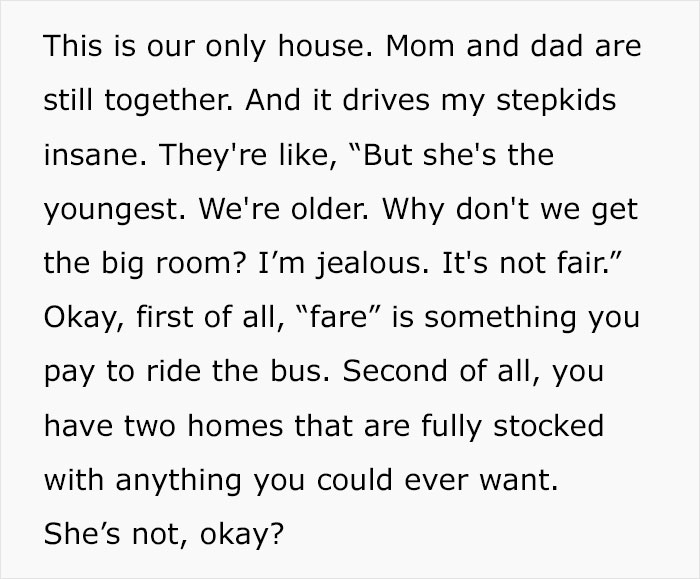
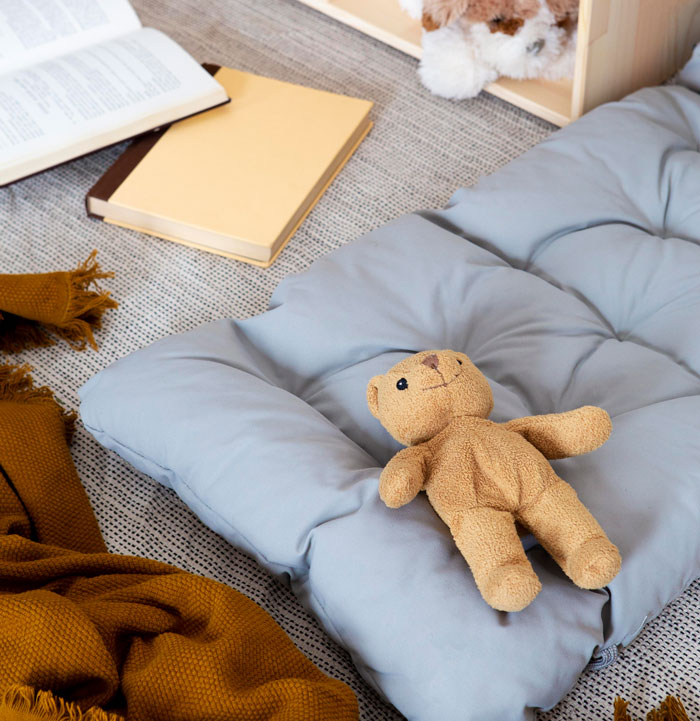
Image credits: freepik (not the actual photo)
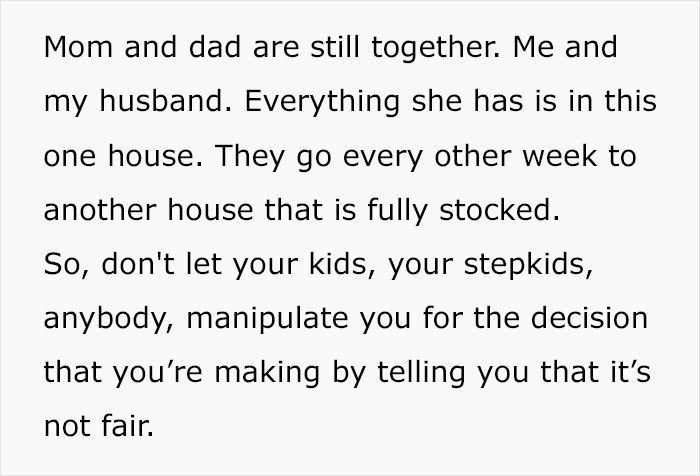
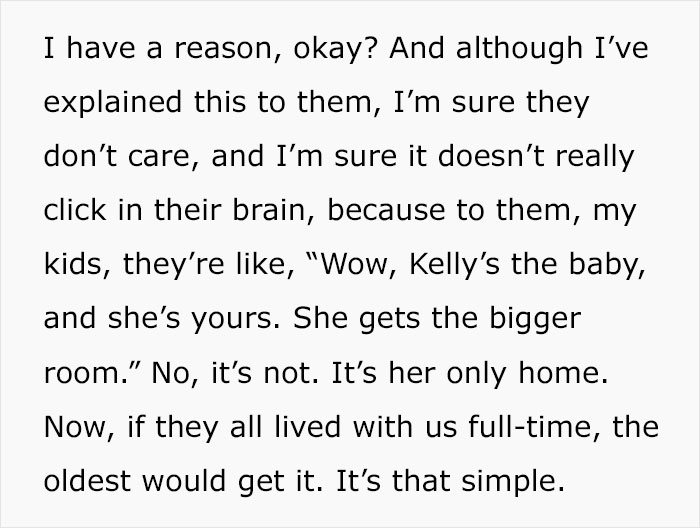

Image credits: lupi6002

Image credits: lupi6002
Although the original video is now unavailable, dozens of people have shared screen-recorded versions online
Parental favoritism almost always backfires later in life
If you had to guess, you’d probably say that living between two households might be more harmful for a kid than living with both parents. Yet, there’s research that suggests the opposite.
Some studies show that joint physical custody has “positive effects on the well-being of children and of parents.” Yet, the participants of these studies are often very similar. The families are well-educated, of middle class, and with parents who have retained a friendly relationship.
However, there are few studies that examine what happens in blended families like this one. Are the children happier when there’s a stepmother even when they live between two households? In this particular case, the kids don’t seem to be that happy because of the stepmom’s favoritism.
And, yes – what she’s doing is favoritism. She thinks that her biological daughter has more rights in this household because her “mom and dad are still together” and “everything she has is in this house.” But the stepmom fails to understand that in doing this, she’s treating the step kids as guests.
Parenting experts note that favoritism never helps parents, even more so stepparents. While it might feel natural to protect and want the best for your biological child, favoriting them over the stepchildren will most likely backfire in the long run.
The effects of parental favoritism are mostly bad. According to sociologist Jill Suitor, children who are less favored are more likely to experience depression, have lower self-esteem, be more aggressive, and exhibit poorer academic performance. The favored children are affected, too: their relationship with their siblings is often fraught because of resentment.
What is just a bedroom in childhood might become a slight a grown-up child still remembers years later. Favoritism affects people not only in childhood, but well into adulthood as well. In this particular case, it’s not just the stepmom doing this. The father is living in the house, too, and is part of making these decisions. It’s most likely the children will remember that when they’re grown up.
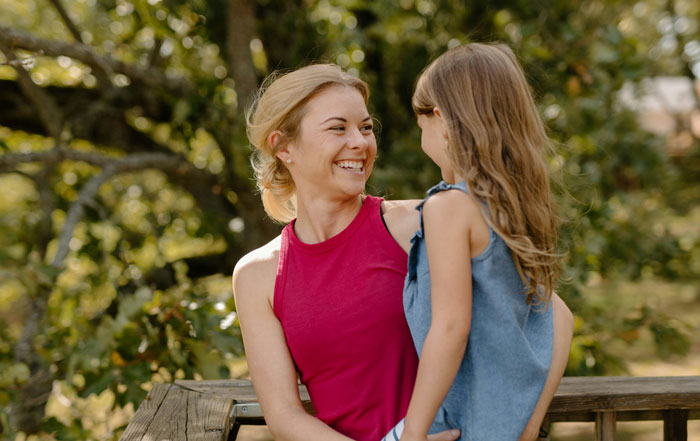
Image credits: Brooke Cagle / Unsplash (not the actual photo)
Here are some things to consider when allocating rooms to children
Let’s leave the stepparent and favoritism aspects on the sidelines for a minute. What room-sharing arrangement would be fair in this situation? What is the usual criteria parents consider (or should consider) when assigning rooms to their children?
According to the NSPCC, children over the age of 10 should have their own bedrooms. As kids grow up, their needs for privacy and space grow, so it’s only natural that each get their own room. It’s also recommended to discuss the room situation with the kids themselves.
The home improvement experts at ShunShelter write that parents should consider:
An argument that the stepchildren would spend less time in the bigger room could be made. But, considering that there are two of them, that might tip the scales in their favor.
Psychological research shows that children have an innate sense of fairness. So, it doesn’t take much for them to feel like they’re being mistreated or that a sibling is receiving better treatment than they are.
Some parents might choose to rotate the rooms from time to time. That way, all the kids get to experience staying in the big room. Of course, fairness doesn’t always mean equality. That’s why it’s important for parents to discuss these things with their children and make them understand why they’re making such decisions.
People’s reactions in the comments were mixed: some agreed with her, while others called her “Cinderella’s stepmom”

























 Follow Us
Follow Us





